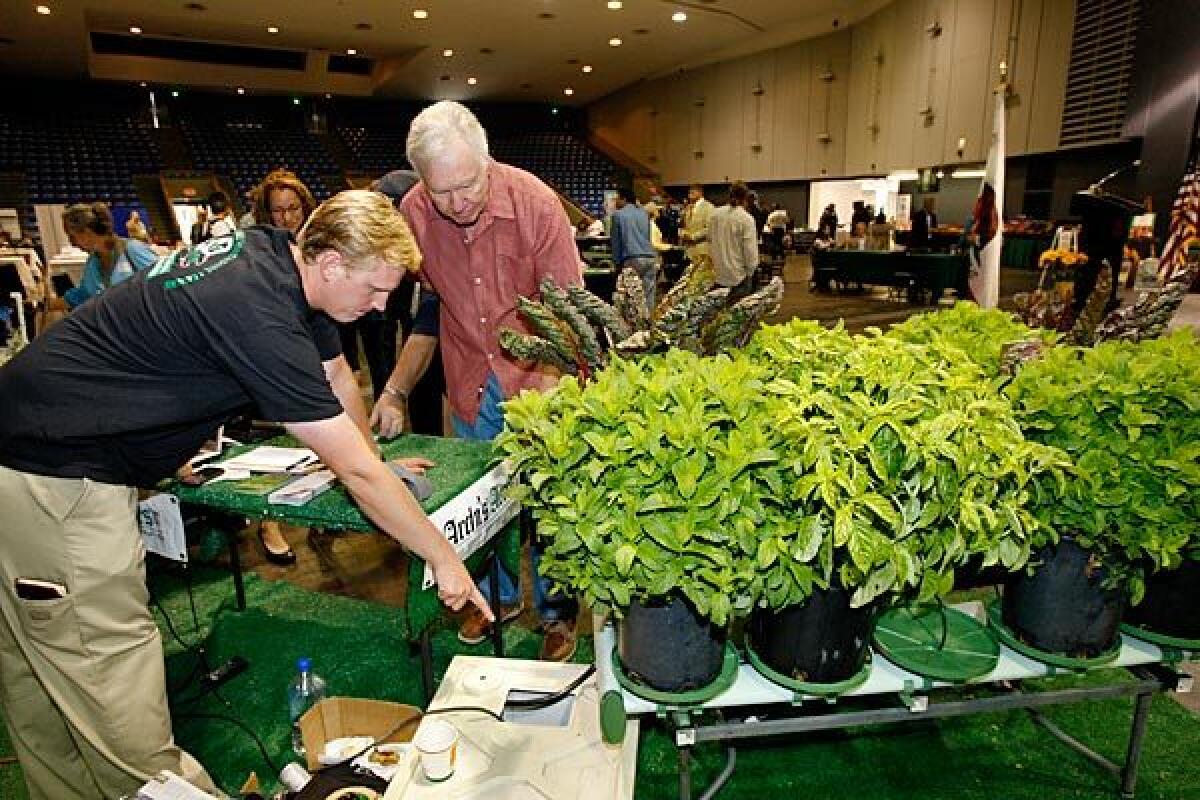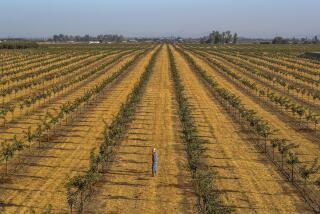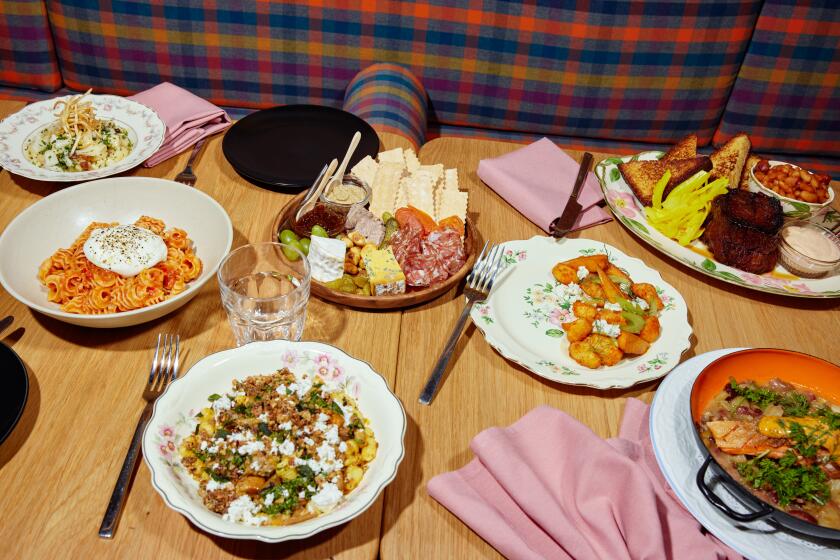From swords to plowshares: Introducing military veterans to farming

- Share via
After Colin Archipley and his wife sold their tiny Venice house and bought 2 acres of land in Escondido in 2005, he started caring for the 200 avocado trees on the land just because they were there.
That turned out to be a catalyst for a new life for the Iraq war veteran.
After leaving the Marines in 2006, Archipley, 29, had a vision of replicating the teamwork and proficiency of his military colleagues.
He found that business: Archi’s Acres now grows herbs and greens — and avocadoes — on 6 acres, some of which he owns and some of which he rents, selling at farmers markets and to Whole Foods and other retailers. Archipley and his wife, Karen, have also started Veterans Sustainable Agriculture Training, an organization geared particularly to service-disabled, combat-experienced post- 9/11 veterans.
The Archipleys were among about 75 farmers, retailers and other vendors at the Santa Monica Civic Auditorium last week for a career fair to encourage veterans to go into farming and other food-related careers.
Participants could talk with potential employers as well as taste food from several well-known chefs, including Josie LeBalch, Susan Feniger and Mary Sue Milliken. The city of Santa Monica donated the space for the fair, and the Santa Monica Farmers Market set up produce displays.
Agriculture is a natural fit for veterans, says Michael O’Gorman, executive director of 2-year-old Farmer Veteran Coalition, the Davis, Calif.-based organization that put on the fair (www.farmvetco.org). Veterans are accustomed to hard work outdoors. Growing food is a service they can take pride in. And working the land can heal many wounds.
“It’s meditational in some ways,” says Jason Rich, who served in the Navy in Afghanistan, worked in Iraq for a private contractor and now works as a consultant with farmers and veterans. “You get to shut down the noise in your life.”
Many young veterans struggle to find their place in the world, says Jennifer Fusaro, a Navy veteran who studied collaborations between small farmers and veterans for her master’s thesis at Humboldt State. Farming, she says, enables veterans to be of service to and feel connected with their communities.
“I am really on a campaign to urge our returning men and women to get into farming,” says O’Gorman, who has 40 years of farming experience.
“Creating a new generation of farmers and food people out of our returning veterans can … give those at risk of being lost the renewed mission and purpose that they need, and the respect — and even heroism — that they deserve,” O’Gorman says. At the same time, veterans can help preserve small family farms.
It can be hard for some veterans to find meaningful work, and many of the skills gained in the military don’t transfer easily to a résumé, says Archipley, who was deployed three times to Iraq.
“We’re purpose-driven. You probably wouldn’t find us in the fashion industry,” he says.
When Rich finished his Navy service in 2003, he went to school to study psychology, intending to work with veterans suffering from post-traumatic stress disorder. Along the way he met people from FOCUS, or For Our Country — United States, a community-based group in Truckee, Calif., that works on a variety of social issues.
They connected with Hungry Mother Organics in Carson City, Nev., which calls itself a “veteran-centric” farm and counts several veterans among its employees.
Rich, 35, has put his schooling on hold for a while; he is employed by FOCUS as a consultant, and through that job works as a veteran coordinator for Hungry Mother, and on the farm and at its farm stand. He was at the fair looking for a full-time employee for Hungry Mother as well as interns and volunteers for the farm, which keeps more than 500 chickens and grows a variety of fruits and vegetables.
Matt McCue, a speaker at the fair, joined the Army after 9/11 and spent a year of combat in Iraq before attending UC Santa Cruz and later teaching agriculture in the Peace Corps.
“Farmers have to save the world — that’s our job,” he says. Today, with his partner Lily Schneider, he runs Shooting Star CSA, a produce farm in Fairfield, Calif. “The quest to find out who I am has brought me from the military to farming.”
More to Read
Eat your way across L.A.
Get our weekly Tasting Notes newsletter for reviews, news and more.
You may occasionally receive promotional content from the Los Angeles Times.











